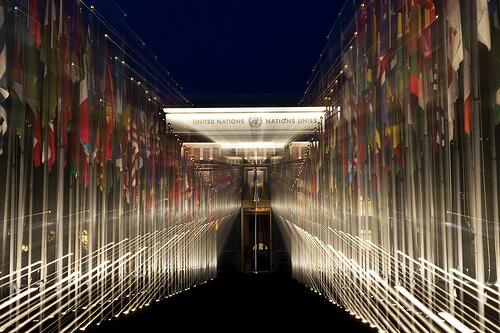On 24 May 2017, States at the UN reached an agreement to prepare an “international regulatory framework” to protect human rights and ensure accountability for violations and abuses relating to the activities of private military and private security companies (PMSCs).
The agreement, reached at Working Group level, has still to be ratified by the full UN Human Rights Council.
It would be the first universal international instrument on human rights and private security companies negotiated and adopted at the UN.
This could pave the way to further developments towards increased monitoring and accountability of the private security industry.
The agreement constitutes a landmark achievement. The intergovernmental Working Group over the past six years have been mired in circular debates as to whether or not it is desirable to develop a legally binding instrument on PMSCs.
Last’s week agreement leaves aside for the moment the decision about the nature of the instrument and will instead allow for a constructive focus on the contents of the future instrument.
Activities of private and military security companies became the object of heightened international scrutiny particularly after events in the context of the armed conflict in Iraq over the past decade.
These include unlawful killings at Nisoor Square and torture and ill-treatment at Abu Graib prison.
A Working Group of experts on mercenary activity appointed by the UN Human Rights Council started to look at the issues in 2007, generating proposals for international instruments to fill perceived regulatory gaps.
Many States have now accepted that the absence of an international regulatory framework combined with limited or non-existent regulation at national level offers a “breeding ground” for human rights abuses committed by PMSCs.
The main clients of these companies are governments that contract them to carry out specific functions, including some that many believe should remain firmly in the hands of public officials.
One key issue that the future instrument should address is the circumstances under which PMSCs can be considered to act on behalf of the State when they are contracted to perform functions that are typically State functions.
International law already governs some aspects of PMSC activity. International human rights law provides for a general obligation of States to protect against the adverse consequences of PMSC activity.
There has also been other international regulatory activity outside of UN auspices in this area.
In 2008 a select group of mostly Western States led by the Government of Switzerland and the International Committee of the Red Cross (ICRC) elaborated the Montreux Document on pertinent obligations for States regarding PMSCs.
Other initiatives such as a Code of Conduct for the PMSCs themselves followed suit. But many States and civil society organizations regard these initiatives as insufficient and lacking the universality afforded by UN processes.
One notable weakness in current approaches is the dearth of standards and mechanisms squarely addressing accountability of private security industry and to ensure access to remedy for those victims of abuse.
Experience shows that States legal frameworks have limited effectiveness when abuses occur at the cross-border level, involving more than one company in more than one jurisdiction, especially in conflict or post-conflict environments.
The prospective international regulatory framework should surely build on existing initiatives, research and findings.
To that end, broad participation by all stakeholders should be ensured.
In this regard, participation of civil society and NGOs specialized in human rights has not been optimal so far.
States leading this new process should make all and every effort to fill that gap, ensuring that international and national civil society receive timely information and facilities for meaningful participation.




